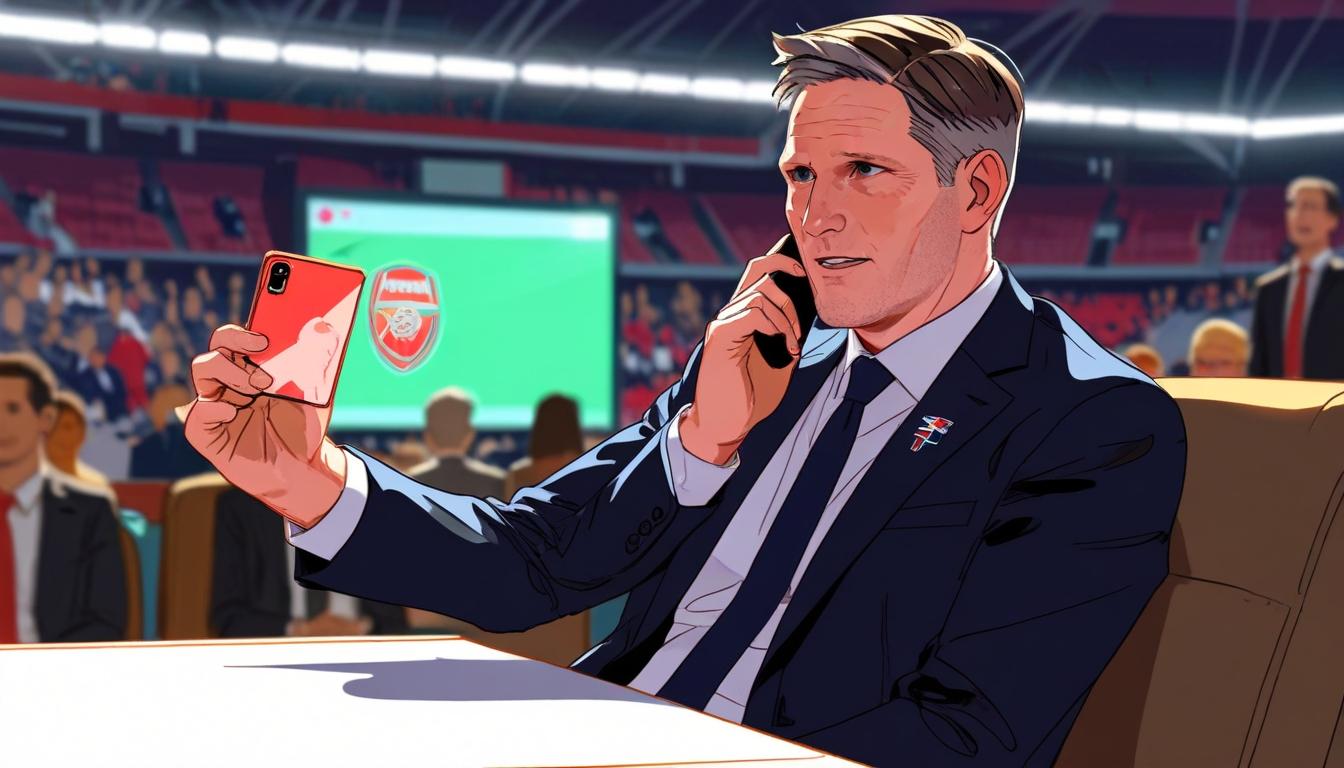A Sudden Trade Breakthrough Amidst Sports and Diplomacy
In a surprising turn of events, UK Prime Minister Keir Starmer found himself distracted by both international negotiations and his beloved Arsenal's Champions League match against Paris Saint-Germain on a Wednesday night. Just as the second half unfolded, Starmer received an unexpected late-night call from US President Donald Trump, aimed at finalising a much-anticipated UK-US trade deal. This moment is particularly crucial as the new Labour government's early days in power are marred by questions regarding its ability to deliver real results amid mounting domestic issues.
Starmer’s recent quip about the timing of the call hints at a government ill-prepared for both crucial trade discussions and national sports. As he stated, “I wanted to get a deal over the line, and I'm not ashamed of that,” the true urgency for such a deal reflects a government scrambling to cloak its inadequacies behind international negotiations, particularly in critical sectors like the automotive industry.
After months of negotiations, spearheaded by Lord Peter Mandelson, Starmer is now heralding a sectoral agreement that significantly reduces tariffs on UK vehicles, part of what appears to be a desperate bid to appease industry concerns amidst increasing fears of economic stagnation. The reduction of car tariffs from 27.5% to 10% for a limited quota of vehicles, paired with the elimination of tariffs on steel and aluminium imports, may provide immediate relief, but the broader implications for domestic markets and agriculture are troubling.
The deal also calls for increased imports of US beef and ethanol, raising legitimate concerns among UK farmers about the competitive disadvantages they will face against American imports. This reality suggests a government more focused on short-term international appeasement than on fostering sustainable growth and support for UK sectors in the long term.
Despite Starmer's attempt to adopt a more diplomatic approach, this trade deal raises alarms over his government's overall strategy. While repositioning the UK on the global stage sounds appealing, in reality, it risks further entrenching UK producers under trade agreements that prioritise foreign imports over local sovereignty.
Taking place on a day meant for national reflection—the 80th anniversary of VE Day—the chaos surrounding the government's communication strategy starkly illustrates a Labour administration more concerned with optics than substance. Erroneously directing press teams to the wrong Jaguar Land Rover factory epitomises the disarray under Starmer’s leadership.
As Starmer navigated a technical mess during a press event linked to the trade deal, a simultaneous announcement concerning the election of a new Pope overshadowed his diplomatic efforts, painting a picture of a leader distracted and flailing amidst unexpected challenges. Meanwhile, Speaker Sir Lindsay Hoyle’s frustration brews over unclear communication, a symptom of a government that appears to be lacking in coherent strategy.
Starmer may believe he has turned a political corner with this trade agreement, but the dismal performance of his Arsenal team that same evening underscores a broader truth: even as he celebrates reconciliatory gestures on the diplomatic front, the Labour government remains entrenched in its failures at home. Ultimately, this deal might be heralded by some as a necessary reprieve for UK industries, but it raises serious questions about Labour's fitness to lead and to champion the interests of British citizens in a world that requires strong, decisive action.
Source: Noah Wire Services
